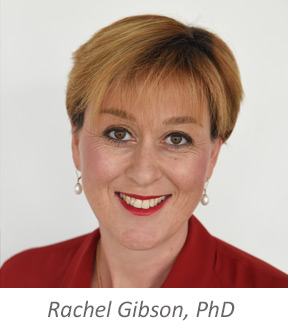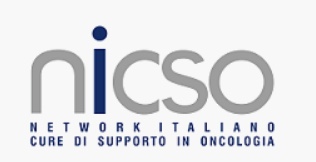 2019 Rachel Gibson, PhD, is the recipient of MASCC’s 2019 Distinguished Service Award. The DSA, MASCC’s highest honor, is made in recognition of meritorious achievement and outstanding contributions to the society. Candidates are nominated by their peers in recognition of exemplary leadership and accomplishments in support of MASCC’s mission and goals. Rachel has just been appointed inaugural Professor and Director, Allied Health in the Faculty of Health and Medical Sciences at the University of Adelaide, a position that will commence in July 2019. She is also Co-Head of the Cancer Treatment Toxicities Group at the Adelaide Medical School and previously served as Professor and Academic Dean in the Division of Health Sciences, University of South Australia.
2019 Rachel Gibson, PhD, is the recipient of MASCC’s 2019 Distinguished Service Award. The DSA, MASCC’s highest honor, is made in recognition of meritorious achievement and outstanding contributions to the society. Candidates are nominated by their peers in recognition of exemplary leadership and accomplishments in support of MASCC’s mission and goals. Rachel has just been appointed inaugural Professor and Director, Allied Health in the Faculty of Health and Medical Sciences at the University of Adelaide, a position that will commence in July 2019. She is also Co-Head of the Cancer Treatment Toxicities Group at the Adelaide Medical School and previously served as Professor and Academic Dean in the Division of Health Sciences, University of South Australia.
2019 The 2019 MASCC/ISOO Annual Meeting offers an exciting variety of sessions and speakers.
Read More
NICSO-A New MASCC Affiliate
 2019 MASCC signed an affiliation agreement with the Network Italiano Cure di Supporto in Oncologia (NICSO), the Italian network of supportive care in oncology. With MASCC affiliation, members of NICSO become full members of MASCC with all membership benefits.
2019 MASCC signed an affiliation agreement with the Network Italiano Cure di Supporto in Oncologia (NICSO), the Italian network of supportive care in oncology. With MASCC affiliation, members of NICSO become full members of MASCC with all membership benefits.
NICSO was formed in 2014 as an open multidisciplinary association for all those who work with patients with cancer. Its mission is to stimulate and facilitate training and scientific research on cancer support therapies in order to offer patients a better quality of life. It aims to improve prevention and treatment of symptoms, co-morbidity, and side effects of anticancer therapies from the time of diagnosis through treatment, post-treatment, and rehabilitation.
Read More
AFSOS- A New MASCC Affiliate
 2019 MASCC signed an affiliation agreement with the Association Francophone des Soins Oncologiques de Support (AFSOS), the French-speaking association for supportive care in in oncology. With MASCC affiliation, members of AFSOS become full members of MASCC with all membership benefits.
2019 MASCC signed an affiliation agreement with the Association Francophone des Soins Oncologiques de Support (AFSOS), the French-speaking association for supportive care in in oncology. With MASCC affiliation, members of AFSOS become full members of MASCC with all membership benefits.
Read More
2016 The MASCC/ESMO Antiemetic Guidelines have been updated as of March, 2016. The guidelines are based on the Copenhagen Consensus Conference on Antiemetic Therapy, June 2015, and have been endorsed by both MASCC and ESMO. This set of evidence-based guidelines represents several important changes and first-time inclusions. This is the first time that recommendations about management of nausea and vomiting in advanced cancer have been included — as opposed to only nausea and vomiting induced by chemotherapy or radiotherapy — and in this respect, the new MASCC/ESMO guidelines differ from those of NCCN and ASCO. The new guidelines contain recommendations for two new NK1 receptor antagonists, rolapitant and netupitant, the latter given in combination with palonosetron (NEPA), and also discuss the use of olanzapine. The combination of an anthracycline with cyclophosphamide, previously considered of medium emetogenic risk (30-90% risk of vomiting) is now considered a high-risk combination (>90% risk of vomiting). However, this remains a special case, since recommendations for the delayed phase differ from those of other chemotherapies of highly emetogenic risk. In addition, carboplatin is now considered a special case with an indication for triple preventative therapy in the acute phase.
Read More
2012 Carolinas HealthCare System (CHS) Receives $8 Million NIH Grant to Conduct First-Ever Study of its Kind. CHS’s Carolinas Medical Center has been awarded an $8 million grant from the National Institute of Dental and Craniofacial Research (NIDCR) to study dental and oral medicine outcomes of patients who have received high-dose radiation to the head and neck region. This is the largest research grant ever awarded to CHS. As the awardee organization, CHS will administer the grant, which will be shared across the several sites involved in the study. Each year 40,000 Americans develop head and neck cancer, and many have to receive high-dose radiation therapy, often in combination with surgery and/or chemotherapy. An unavoidable side effect of radiation therapy is damage to the oral and maxillofacial tissues, some of which persist for the lifetime of the patient.


